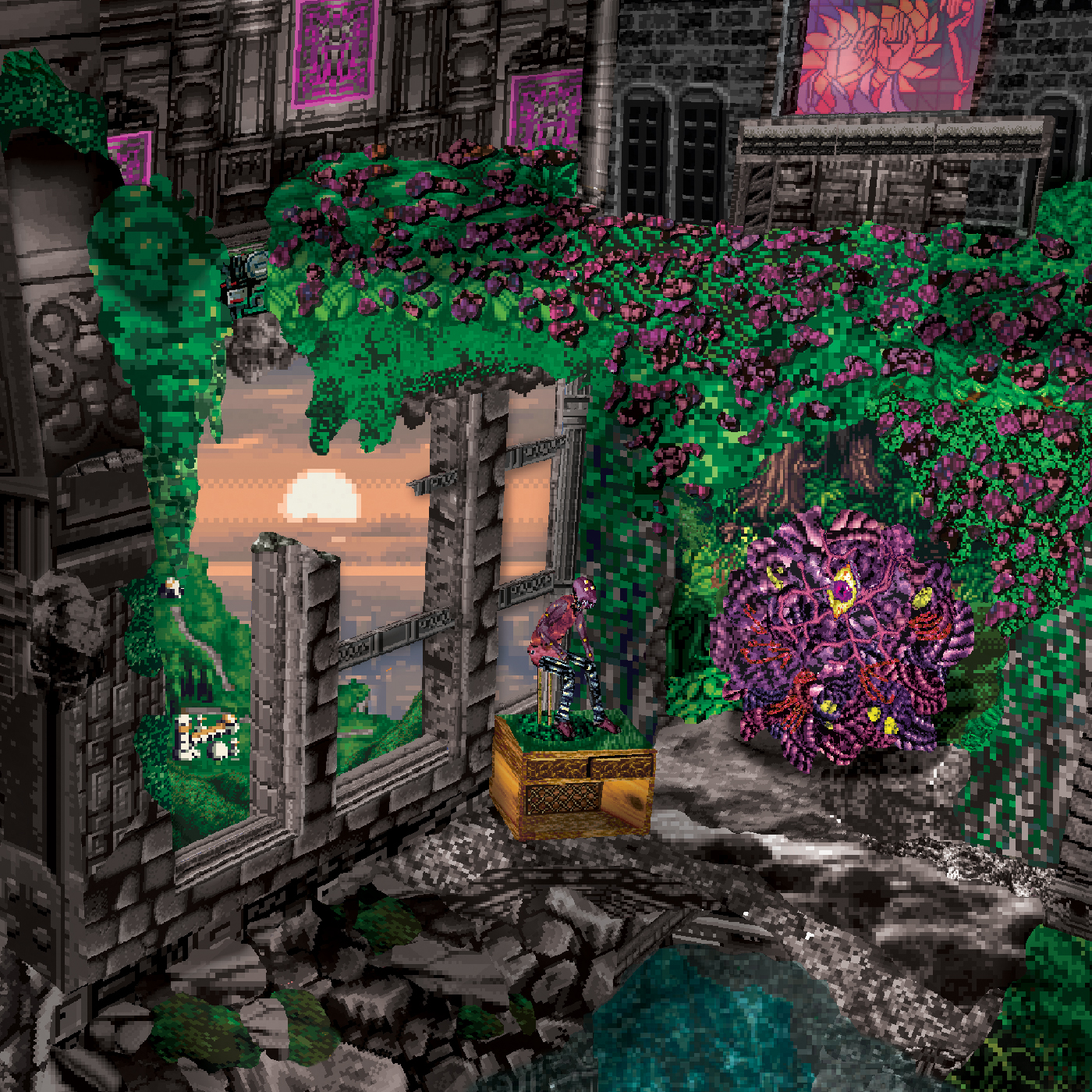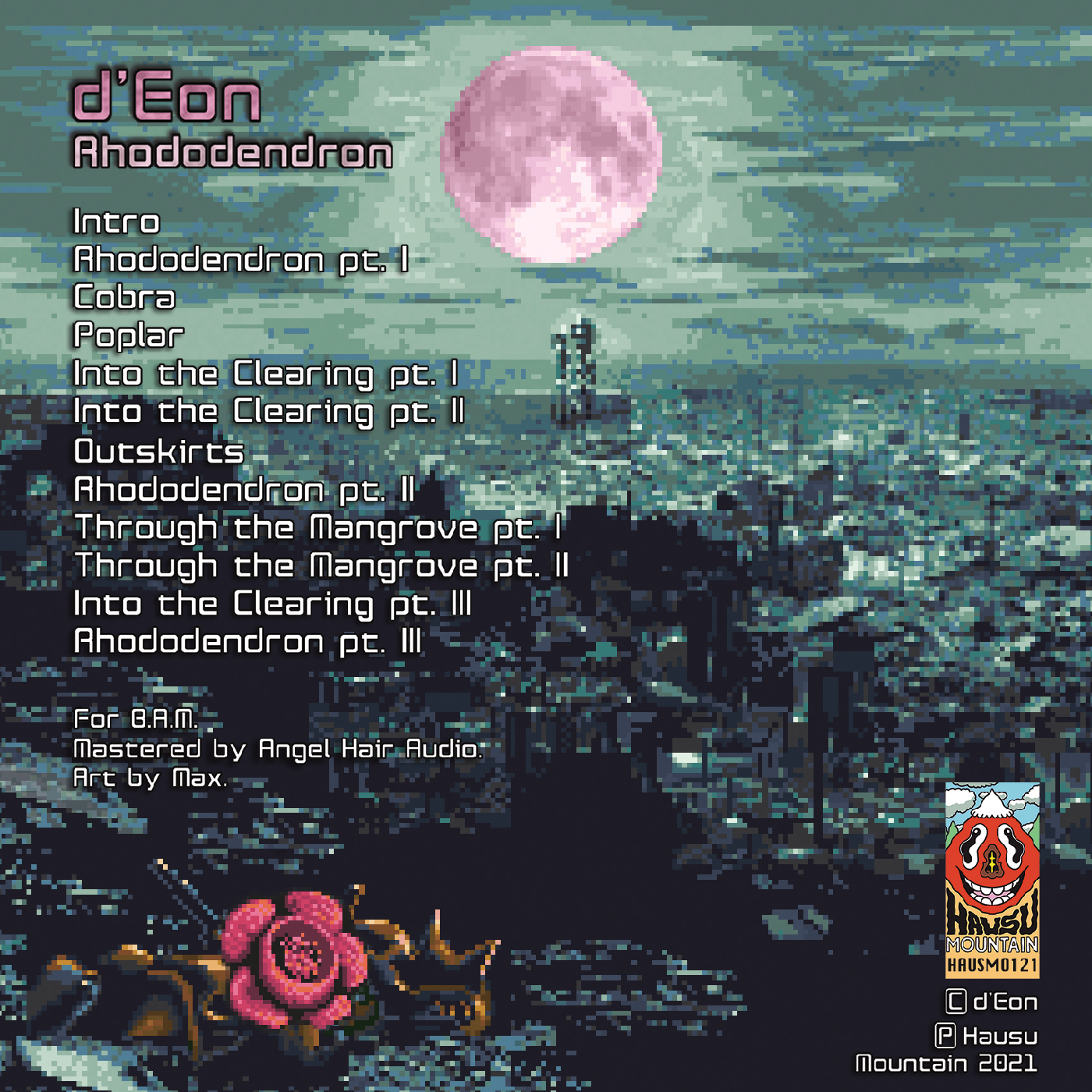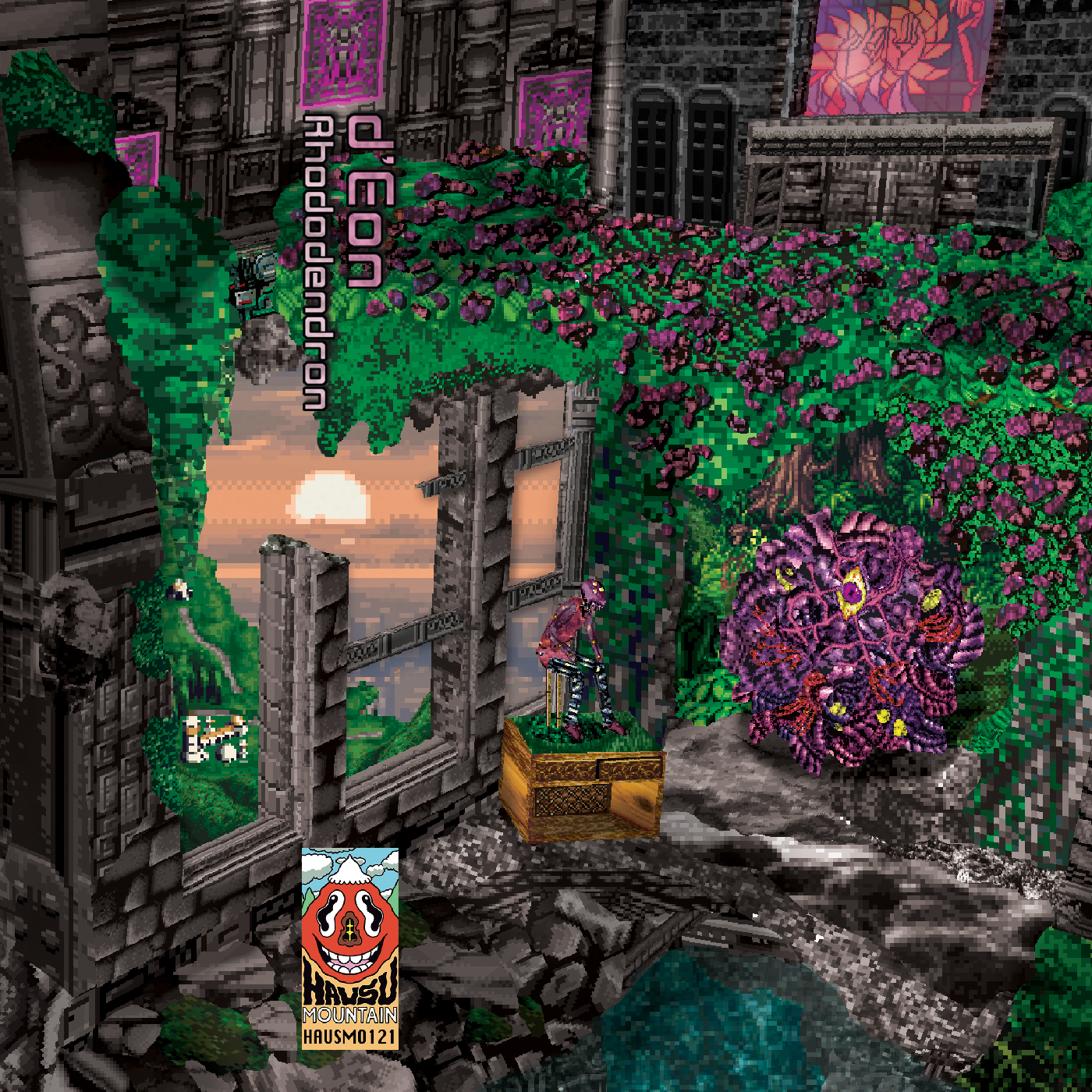
To be released on CD, cassette, and digitally on 08/13/21. Pink tape with black imprints. CD packaged in a mini-LP jacket. Artwork by HausMo Max. This is the catalog page with album information and artwork. To view the store page, click here.
Since he started the d’Eon project in the late 2000s, Montreal-based composer / producer Chris d’Eon has created a wide catalog of works that defy easy classification. His bottomless toolbox of contrasting styles and compositional frameworks contains everything from richly melodic keyboard music to glitched algorithmic abstractions to high-definition pop- and R&B-adjacent songwriting to holy post-classical minimalism to unabashed dance floor bangers. All of these vocabularies cohere into a polyglot practice defined by restless experimentation and ever-evolving complex forms. In the early 2010s, the dearly missed LA-based label Hippos In Tanks released six of d’Eon’s albums, including many entries in his ongoing Music For Keyboards series, and his split LP with Grimes called Darkbloom in 2011. Uniting contemporaries like James Ferraro, Arca, Dean Blunt, Laurel Halo, and Oneohtrix Point Never into one catalog, Hippos In Tanks sketched out an international electronic vanguard within which d’Eon was a prolific participant. Since the label’s dissolution after the tragic death of founder Barron Machat in 2015, d’Eon’s music has appeared in digital self-releases, including a series of albums under the Trios banner, that continue to carve out new trails in modern electronic composition.
Hausu Mountain has the honor to release d’Eon’s Rhododendron, his first album to appear on physical formats since 2015. The artist considers the album a culmination and synthesis of the many divergent styles that he has explored over the years into one discrete program of music marked by its diversity and constant self-reinvention. At its core, Rhododendron focuses on a palette of synthetic woodwinds, plucked string instruments, and fragments of choral voices, though d’Eon molds these tones into pieces with vastly different moods and levels of density and intensity. At times, his ornate melodies in two- to four-part counterpoint trace out thrilling mini-narratives of electronic chamber music loaded with warm sentimentality and euphoric peaks, revealing how much emotion he can wring as a composer out of a small ensemble of digital instruments. In other moments, his orchestral tones are treated as fodder to scramble and reconfigure into rippling mosaics that morph into arrhythmic arcs and rapid-fire bursts of texture. When he dials everything back down to the bare minimum of one or two elements, as on the album centerpiece “Outskirts” which highlights a central voice somewhere in the neighborhood of a harpsichord or hammered dulcimer, d’Eon’s keyboard wizardry comes to the forefront as his nimble, heavily ornamented runs wind their way through expanding improvised helixes and swell to overwhelming apexes.
While the elements that populate his tracks call attention to their own synthetic quality, d’Eon exploits their distinct textures, their crystal clarity, and their pure malleability to give life to the digital chamber music in his head. Even when his pieces veer towards more hectic stews of tones glitched together in unpredictable fashion, the notion of clarity remains central to d’Eon’s work: he has confidently stacked his building blocks into baroque architectures without equivocation or wasted space. Created using the same instrument-mimicking rompler synths used by video game music composers in the PS1/PS2 era around the turn of the 21st century, Rhododendron often lands in an emotional and tonal space similar to the soundtracks of the RPGs of that era. While he acknowledges the influence of these games’ composers on his work, he’s quick to dispel the idea of his music being specifically “video game music” or the OST to some imaginary game. d’Eon applies inspiration from that world as just one aspect within his distinctly future-facing compositions, which rope together influences from traditions as far-flung as 18th and 19th century classical music, contemporary experimental club music, early liturgical composition, and free-form abstract synthesis. d’Eon‘s emphasis on tones reminiscent of video games works to position that lexicon to be just as fertile as other more widely accepted, “highbrow” touchstones, while also drawing a dividing line between the preconception of game music as blippy chiptune vs. its potential as a lush, cinematic medium. When all is said and done, Rhododendron is simply a pleasure to listen to in all of its wistful beauty. d’Eon’s melodies can convey excitement and mischief just as easily as uncertainty or anxiety. It’s no small wonder that such a technically capable performer and knowledgeable studio / production expert could have such a firm command of emotional storytelling as well. His music entertains and challenges us, asking us to follow him down another path just to see where we might end up.


